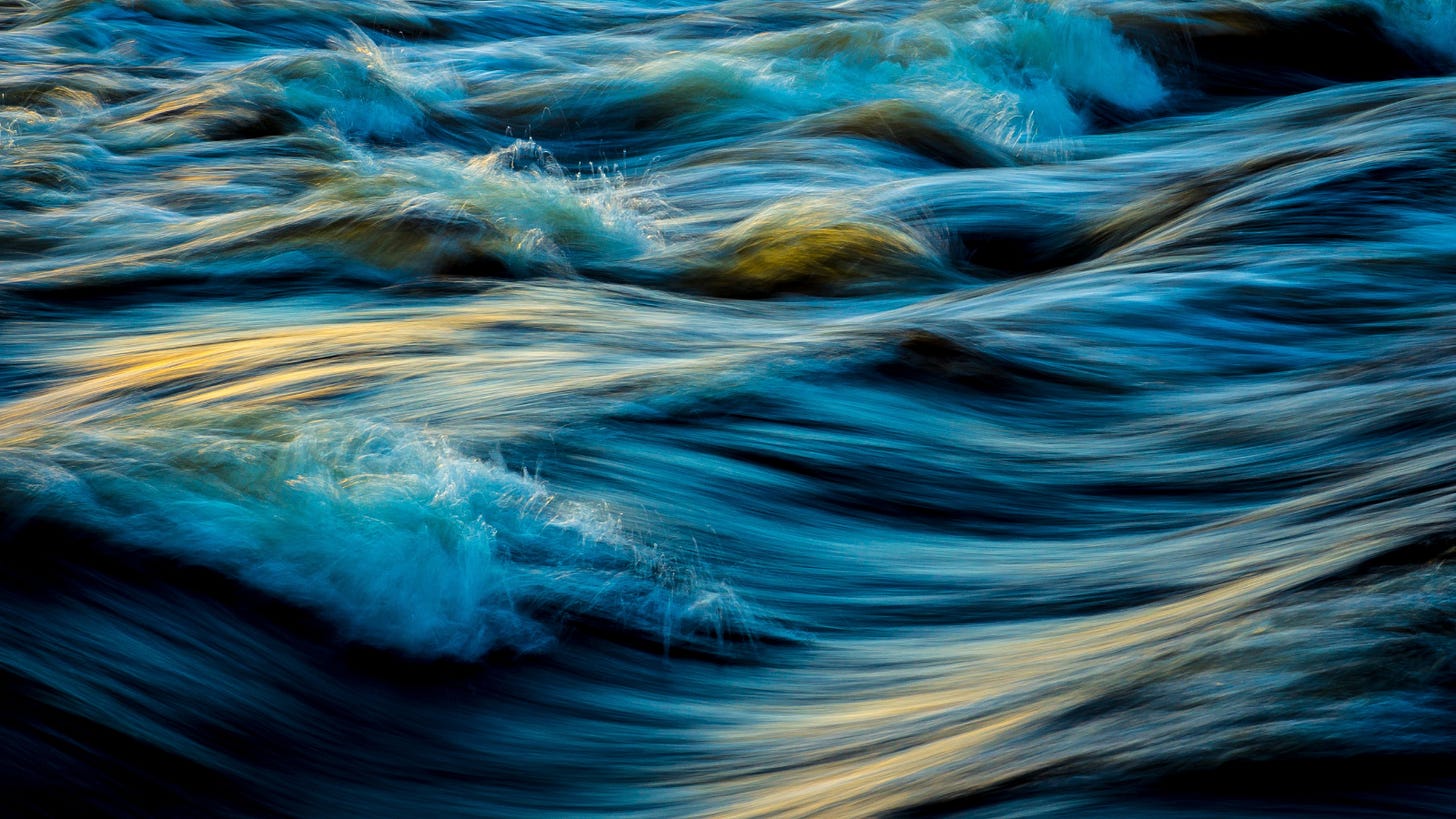The arteries of the Earth
The mighty role of rivers
Hi 👋 Amie here.
Apologies for the extended absence, but I have been a busy little bee lately (is there an ocean equivalent to a busy bee? A preoccupied plankton maybe? I was a preoccupied plankton then.)
Preoccupied with saving the ocean but via rivers this time. One river in particular - the Hudson. I run the social media channels for a conservation NGO, and our latest campaign involved spotlighting rivers. Rivers are the great connectors of the Earth’s water cycle, and they play an important role in ensuring a habitable planet. Documenting this involved creating six solid weeks of educational, motivational and inspiring content to save our rivers. Hence the forced neglect of this newsletter!

I learnt a lot in those six weeks about freshwater ecosystems - how they function, the species that live in the world’s lakes, rivers, streams, wetlands and estuaries, how the movement of freshwater around the planet sustains us all, and the severe threats they face. Freshwater biodiversity has dropped by 83% since 1970.
Let me repeat that. 83%. Freshwater species have declined by 83% in just 50 years due to habitat loss, damming rivers and reducing flow, exploitation, invasive species and pollution.
Being from the UK, I’m very aware of the issue of sewage pollution in our rivers, but before this campaign I was unaware of the extent of the damage. Rivers, I’ve learned, are the most degraded ecosystems in the world. As a marine conservation enthusiast, I admittedly haven’t given much thought to rivers or how much we rely on their healthy functioning in nature, but during this campaign I’ve become as fascinated with rivers as I am with the ocean. (Also, rivers seem less frightening to me than the open ocean so my research is a more peaceful experience, which I appreciate.)
Within nature, healthy rivers transport vital nutrients to the ocean which feed the linchpin of the big blue - our friend, the plankton. These nutrients enrich the riverbed and the soil along its banks too, supporting biodiversity. Also, their free-flow allows sediment to accumulate, providing new habitats and spawning areas for plants, invertebrates, and birds.
It seems we easily forget that water doesn’t come from a tap, but from freshwater sources, and that rivers aren’t the dumping grounds we use them for. Their central role within nature not only supports an abundance of flora and fauna but us too, providing many nature-based solutions in the face of climate change. There’s a reason our cities are often built along the banks of a river. They provide welcome green infrastructure in an increasingly urban world. Giving us places to cool off, defence against flooding, and clean water, rivers also offer food security, pollution control, and carbon sequestration.
The urgency to restore our river systems has never been greater. Right now, we stand to lose some of the world’s richest biodiversity and are continuously putting our most precious resource at risk. We need rivers and we need them healthy.
I’ve learnt a lot about rivers in just a short amount of time and I’ve really enjoyed the process. It feels like a door has been opened. Enough so, that although the main focus of Beached will remain marine life, you’ll likely be seeing some freshwater content here from time to time.
And without a 2 month break in between!
Here at Beached we are building a community that can put our brains and resources together to highlight and fund solutions to the problems facing the world’s rivers and the ocean. I hope you’ll join our humble community and click subscribe for free or support our work by purchasing the paid subscription.
All Beached posts are free to read but if you can we ask you to support our work through a paid subscription. These directly support the work of Beached and allow us to engage in more conversations with experts in the field of marine conservation and spend more time researching a wider breadth of topics for the newsletters. Paid subscriptions allow us to dedicate more time and effort to creating a community and provide the space for stakeholders to come together, stay abreast of each other’s work and foster improved collaboration and coordination.
One day Beached hope to donate a large percentage of the revenue from paid subscriptions to marine conservation organisations and charities to support their work too. Working together, we can reverse the degradation of our oceans and rivers.
Amie 🐋




There are other ways of looking at all of this, Amie. Nature itself is unkind, and aloof, and we are a part of it. The problems have been recognized. Work has been done and more will be. Extinctions are not always complete, and if the time left is used well, life will rebound. In my view, politics are the worst enemy because even science is politicized, thus, science is not trusted. We must somehow manage to reverse that. Once brought back to a natural balance, biodiversity can fluorish anew. There are ways to accomplish that while we live and breathe on this planet, and without major losses to our own species. I’ll be writing about that. Soon.
Wait till the assessment of sea life comes in, when the leaking radioactive waste cuts loose.